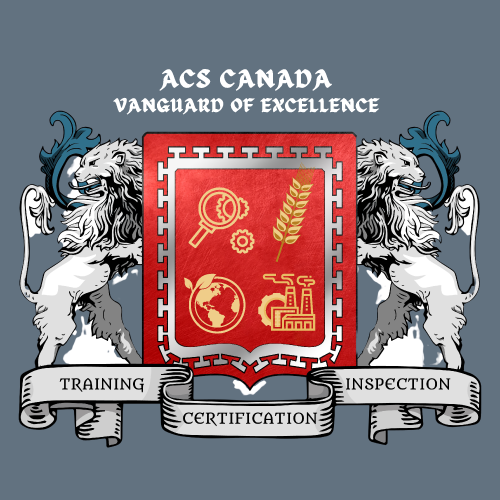ISO 9001 CERTIFICATION

QUALITY MANAGEMENT SYSTEM
Receiving ISO 9001:2015 certificate from ACS, offers several significant benefits for organizations. Here are some key advantages:
1. Compliance with Quality Requirements: ISO 9001:2015 is a widely recognized standard that sets out the requirements for an effective quality management system (QMS). By obtaining ISO 9001:2015 certificate from ACS, your organization demonstrates its commitment to consistently meeting customer requirements and enhancing customer satisfaction. This certification serves as tangible evidence of your organization's dedication to delivering high-quality products and services.
2. Process Efficiency and Effectiveness: Implementing ISO 9001:2015 and achieving certification through ACS encourages organizations to improve their process efficiency and effectiveness. The standard provides a systematic framework for identifying, managing, and optimizing key processes. By working with ACS, you gain access to expertise and guidance to streamline your operations, reduce waste, enhance productivity, and deliver products and services that meet customer expectations.
3. Competitive Advantage: Holding an accredited ISO 9001:2015 certificate from ACS provides a competitive edge in the marketplace. It demonstrates your organization's commitment to quality management and customer satisfaction, which can attract discerning customers and partners. The certificate showcases your organization's ability to consistently deliver high-quality products and services, differentiate yourself from competitors, and open doors to new business opportunities.
4. Stakeholder Trust and Confidence: ISO 9001:2015 certification from ACS enhances stakeholder trust and confidence in your organization's ability to deliver quality outcomes. It provides assurance that your organization has implemented effective quality management practices, including risk-based thinking, continuous improvement, and customer focus. This instills trust among customers, shareholders, regulatory authorities, and the community, strengthening your reputation as a reliable and customer-centric organization.
5. Risk Management: ISO 9001:2015 emphasizes identifying and managing risks and opportunities. By obtaining an accredited ISO 9001:2015 certificate from ACS, your organization demonstrates a proactive approach to risk management. This includes assessing potential risks, implementing preventive measures, and having robust contingency plans in place. Effective risk management helps mitigate operational disruptions, customer dissatisfaction, and reputational damage, safeguarding your organization's long-term success.
7. Continuous Improvement: ISO 9001:2015 promotes a culture of continuous improvement in quality management. ACS signifies their expertise in guiding organizations through the certification process and helping them develop effective quality management systems. By working with ACS, you gain access to ongoing support, audits, and evaluations to identify areas for improvement and drive sustainable practices. This leads to a cycle of continual improvement, enhancing your operational performance and customer satisfaction over time.
Obtaining ISO 9001:2015 certificate from ACS demonstrates compliance with quality requirements, enhances process efficiency and effectiveness, creates a competitive advantage, builds stakeholder trust, improves risk management, and fosters a culture of continuous improvement. Working with ACS as your certification body ensures that your organization receives reputable certification and gains the expertise to effectively manage quality responsibilities while achieving sustainable business outcomes.
Training at ACS Canada
ACS employs accelerated learning methods to ensure a comprehensive grasp of all certificates. Our approach involves contextualizing your learning through a wide array of options, including classroom instruction, workshops, as well as interactive and online sessions.
ISO 9001 CERTIFICATION Training - 1

Marketing Management
By the end of this course, the participants would be able to prepare a marketing plan by marketing mix concepts, marketing segmentation, targeting & positioning (STP), and identifying consumer behavior. Why Marketing Management is a vital part of the organization: Kotler says” The future is not ahead of us. It has already happened. Unfortunately, it […]
More About This CourseISO 9001 CERTIFICATION Training - 2

Business Decision Analysis Course
The aim of this course is to define and teach the steps of the decision-making process, define the different roles played by qualitative and quantitative approaches to managerial decision making. Course Content: Decision-making process, Perform cost-revenue-profit analysis, and calculate break-even values, mathematical models for calculating break-even, maximization of profit, and minimization of costs with given […]
More About This CourseISO 9001 CERTIFICATION Training - 3

Business Statistics and Data Analysis
Every year humans are producing more and more data. The central challenge businesses and individuals face making sense of all this data we are now confronted with. This class will help introduces you to essential tools for making sense of data. Course Content: Introduction to Statistics, Descriptive Statistics (Part 1 – Tables and Graphs), Descriptive […]
More About This CourseISO 9001 CERTIFICATION Training - 4

Quantitative Methods for Business Management
This course teaches best practice quantitative methods used in conventional and sustainable business settings
More About This CourseISO 9001 CERTIFICATION Training - 5
SPC & SQC

SPC-SQC
This course aims to teach the principles and practices of basic QC tools including statistical process control, SPC, and statistical quality control, SQC.
More About This CourseISO 9001 CERTIFICATION Training - 6
QUALITY FUNCTION DEPLOYMENT

QFD Training Course
This course aims to teach the principles and practices of Quality Function Deployment, QFD.
More About This CourseISO 9001 CERTIFICATION Training - 7
STRATEGIC THINKING

STRATEGIC THINKING
Now a day , Strategic thinking is a very important practical concept, in this course we will get to know the concepts and stages of strategic thinking. Strategic Thinking is a mental synthesis process creating an integrated view of the business in mind, through creativity and intuition “Mintzberg”. Course Content: Strategic thinking definitions: Mintzberg, Porter, […]
More About This CourseISO 9001 CERTIFICATION Training - 8
Design of Experiment

Design of Experiment (DOE)
Design of Experiment (DOE) is a powerful statistical technique for improving product or process designs and solving process or production problems. DOE defines control changes to input variables in order to find cause and effect relationships with a minimum sample size. When analyzing a process, experiments are often used to evaluate which process inputs have […]
More About This CourseISO 9001 CERTIFICATION Training - 9
QMS LEAD AUDITOR

ISO 9001 – Lead Auditor
This course aims to teach the principles of QMS third-party audits. This course could be certified by Exemplar Global.
More About This CourseISO 9001 CERTIFICATION Training - 10
QMS INTERNAL AUDITOR

ISO 9001 – Internal Auditor Course
This course aims to teach the principles and practices of effective quality management system first and second-party audits.
More About This Course
